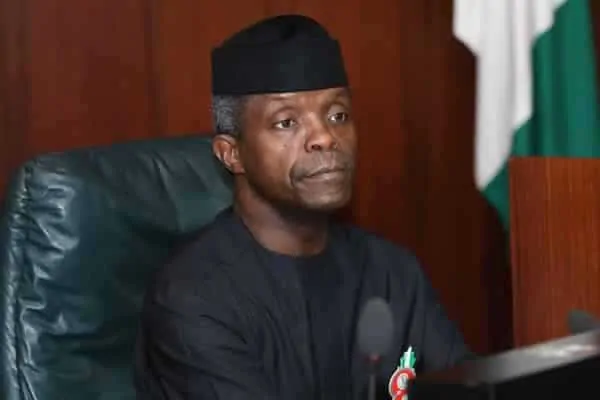The Vice President, Yemi Osinbajo (SAN), says multinational digital companies operating abroad with significant economic presence in Nigeria will be subjected to taxation under the new Finance Act.
Osinbajo disclosed this on Friday in Abuja during a lecture titled: “Economic Dimension of National Security: the Nigerian Experience,” organised for participants of Course 28 of the National Defence College.
According to him, before the Finance Act, only companies that have physical presence or fixed address in Nigeria are being taxed.
He said: “So, most digital and multinational technology companies do not have physical presence in Nigeria, yet make significant income in Nigeria from online activities.
“They pay no tax to Nigeria because they do not have physical presence in Nigeria, now we are no longer relying on physical presence.
“Under the new Act, once you have a significant economic presence in Nigeria, you are liable to tax whether you are resident here or not.”
Osinbajo said non residents, who previously had no fixed address, would now be taxed under the new Act.
The vice president said the Finance Act was designed to generate more revenue for government and improve the ease of doing business in Nigeria.
He noted that adequate provisions were made under the Act to protect the Small and Medium Scale businesses in view of their roles in national development.
Osinbajo said the economic policies of the Federal Government were centred on creating conducive environment for the private sector to strive and support towards creating wealth, jobs and opportunities.
He said: “Private sector is key to job creation and in doing so, government has responsibility to provide the needed infrastructure and enabling environment.
“Before the private sector is able to provide sufficiently for the majority of people, it is the responsibility of government to provide safety net for the extremely vulnerable and those who cannot work.
“This is the premise upon which our social investment policy was derived.”
Osinbajo said the security and welfare of citizens was the primary purpose of government, adding that the economy was central to human security.
He said human security was beyond absence of war and conflict, but the availability of basic needs of man, food, shelter and clothing.
Trending
- Fidelity Bank records 238% oversubscription in first phase of equity capital raise
- Akwa Ibom doles out N550m farmers, business owners, others
- Late HoS: Sanwo-Olu, Fashola, Speaker pay last respect
- Otu orders expanded healthcare for vulnerables, sponsor six-year old strangulated hernia surgery
- Baba Ijebu mourns as Ogun top monarch, Oba Idowu-Basibo, joins ancestors
- Edo: NSCDC denies alleged involvement of officers in Bolt driver’s death
- Yabatech don calls for incorporation of heritage education in school curriculum
- Reps back Tinubu’s revised N54.2trn 2025 budget


